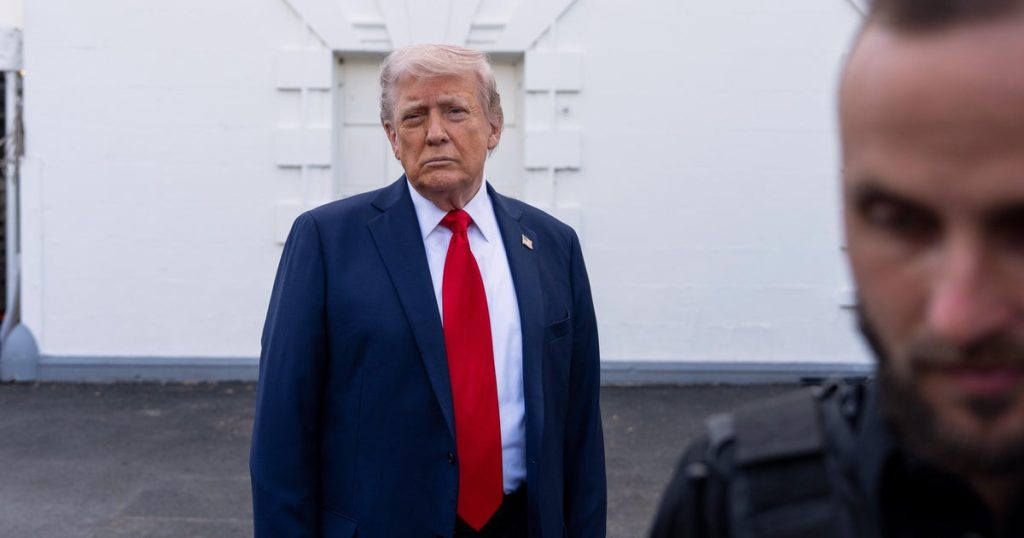A federal judge in New Hampshire has limited the Trump administration’s ability to revoke federal funding from public schools involved in diversity and equity initiatives. U.S. District Judge Landya McCafferty ruled that the administration’s efforts could severely impede educational institutions, arguing such actions violate executive powers concerning local schools. This ruling specifically affects public schools associated with the plaintiffs, the National Education Association (NEA) and the Center for Black Educator Development, and may have wider implications for diversity programming across the nation.
| Article Subheadings |
|---|
| 1) Background of the Ruling |
| 2) Details of the Lawsuit |
| 3) Judge’s Findings |
| 4) Reactions from Educators and Officials |
| 5) Broader Implications for DEI Initiatives |
Background of the Ruling
The legal battle began against the backdrop of mounting tensions between the Trump administration and various educational institutions over the implementation of diversity, equity, and inclusion (DEI) programs. In recent years, public schools across the United States have increasingly adopted initiatives aimed at promoting inclusivity, cultural understanding, and support for marginalized communities. However, the Trump administration’s stance has been that many of these programs violate existing civil rights laws, leading to an aggressive push to control funding related to these initiatives.
Details of the Lawsuit
The case was brought forward by the NEA and the Center for Black Educator Development after the Education Department issued a directive demanding compliance from all states regarding federal funding. The universities feared losing essential funding if they did not align their DEI practices with the administration’s guidelines. According to reports, the administration’s stance was based on claims that schools propagated “pervasive and repugnant race-based preferences,” asserting that any educational materials or discussions around systemic racism undermined the ideals of equality as intended by the 1964 Civil Rights Act.
Judge’s Findings
In her ruling, Judge McCafferty criticized the administration’s position, suggesting that the policies could obliterate academic freedom and faculty roles dedicated to teaching about race. She pointed out the absurdity of potentially categorizing meaningful discussions on historical race relations as violations of civil rights provisions. The Judge contended that the administration’s definition of diversity as unlawful strayed far from the established meanings, thereby jeopardizing the integrity of educational discussions and inhibiting teaching methods that address race. This affirmation came as news that could embolden educational institutions grappling with the fallout from the Trump administration’s directives.
Reactions from Educators and Officials
Responses to the ruling were immediate and varied. Becky Pringle, President of the NEA, expressed relief, stating that the ruling would enable educators to prioritize student needs over political threats. In her remarks, she highlighted the importance of inclusive education and reaffirmed the role of educators in shaping informed citizens. On the contrary, a White House spokesperson, Harrison Fields, criticized the ruling, maintaining that it undermined efforts to protect civil rights. He accused the judge of disregarding constitutional duties, framing the Trump border initiative as an essential stance against “radical” programming that could jeopardize the equal treatment of all Americans.
Broader Implications for DEI Initiatives
The ruling sparks broader discussions regarding the future of DEI programming not just in education but also across government sectors. The Trump administration’s earlier efforts to dismantle DEI initiatives through executive orders and various agency regulations may receive increased scrutiny following this decision. As educational institutions prepare to navigate the complexities of compliance with federal regulations, the lasting effects of this ruling may influence policy-making at both state and national levels. The questions on maintaining DEI programs could now shift into the courts, where institutions might seek to continue their initiatives against federal mandates that seek to limit them.
| No. | Key Points |
|---|---|
| 1 | The ruling limits the Trump administration’s ability to withhold federal funding from public schools involved in DEI initiatives. |
| 2 | Judge McCafferty criticized the administration’s approach as harmful to educational operations and freedoms. |
| 3 | The lawsuit was spearheaded by the NEA and the Center for Black Educator Development, representing interests in education. |
| 4 | The White House has defended its stance by claiming it aims to end practices contravening civil rights laws. |
| 5 | The broader implications of this ruling may lead to lasting changes in DEI policy across educational institutions. |
Summary
The ruling delivered by Judge McCafferty encapsulates a pivotal moment in the ongoing debate over diversity, equity, and inclusion in American education. The decision not only protects the funding essential for DEI initiatives but also affirms the importance of academic freedom within educational settings. As both sides prepare for potential appeals and further legal action, the implications of this ruling are likely to extend beyond New Hampshire, influencing national policy and educational practices in a climate increasingly polarized around issues of race and equity.
Frequently Asked Questions
Question: Why did the NEA and Center for Black Educator Development file the lawsuit?
They filed the lawsuit in response to the Trump administration’s demands that schools comply with federal directives or risk losing funding, which they viewed as an infringement on educational autonomy.
Question: What was the primary concern of Judge McCafferty regarding the administration’s actions?
Judge McCafferty expressed concern that the administration’s policies could stifle discussions on race in classrooms, threatening both educational integrity and critical thinking.
Question: How will this ruling impact the future of DEI initiatives across the nation?
This ruling may encourage educational institutions to maintain or expand their DEI initiatives despite federal pressures, while also prompting legal challenges against similar restrictions in the future.


